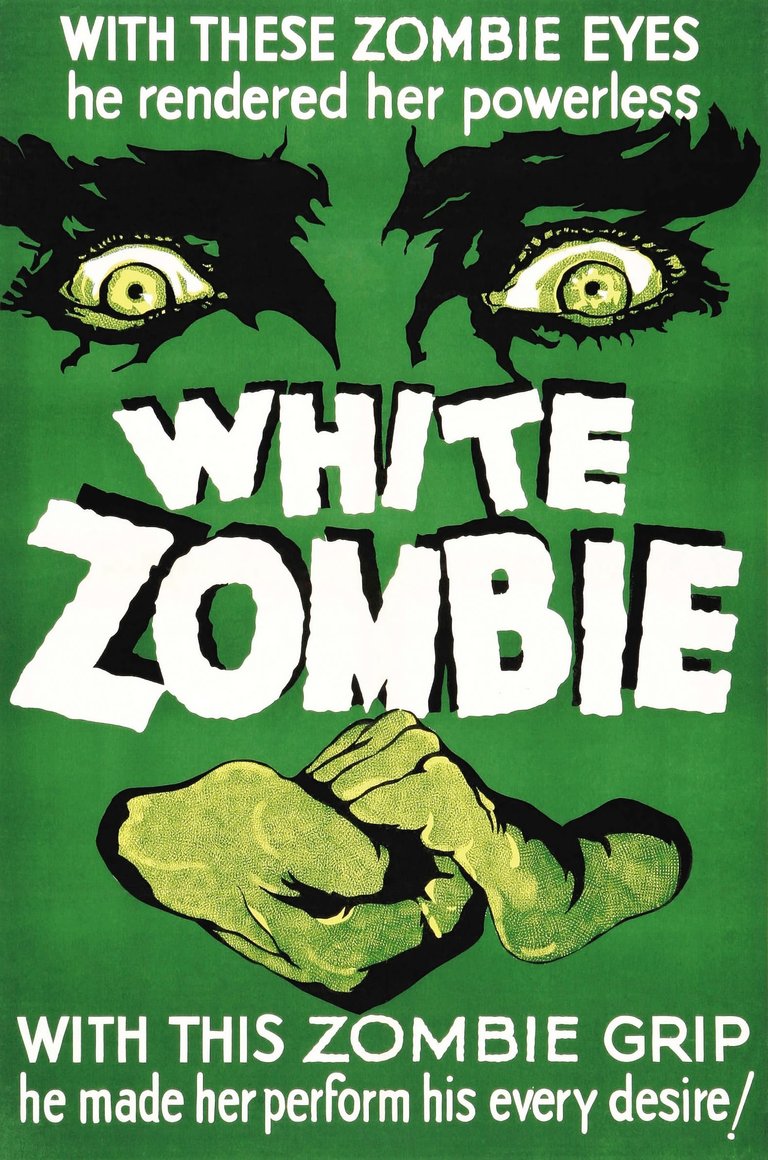White Zombie (1932)
Movie Review: "White Zombie" (1932) - A Timeless Classic That Birthed the Zombie Genre
For October, I'm continuing my review of classic horror films, all in good Blind Skeleton style. White Zombie, released in 1932, is directed by Victor Halperin and stars the iconic Bela Lugosi of Dracula fame.

The movie follows a young couple - Madeleine and Neil - to Haiti to tie the knot. But their love story takes a dark turn when they cross paths with 'Murder' Legendre, a creepy voodoo master played to perfection by Lugosi. Legendre has a thing for zombies—using them as his personal minions—and he becomes dangerously obsessed with Madeleine. He uses his voodoo magic to transform her into a zombie, throwing the couple's world into chaos.
Neil is devastated by Madeleine's transformation and turns to Dr. Bruner, a missionary well-versed in the dark arts of Haitian voodoo. Together, they set out on a risky mission to infiltrate Legendre's creepy lair, a journey fraught with zombies and peril. The tension ramps up as they try to save Madeleine, leading to a gripping showdown that challenges the very essence of love and sacrifice.
The film wraps up with a sort of poetic justice, as Legendre's own zombie minions turn against him. The ending leaves you with mixed feelings—a blend of relief and a lingering sense of sadness. It makes you ponder the ethical implications of using dark magic to bend someone's will.
Bela Lugosi's portrayal of Legendre is nothing short of mesmerizing. Those piercing eyes and that sinister aura add layers to what could have been a one-dimensional villain and turn the role into something career-defining. Fresh off his success in "Dracula," Lugosi cements his status as a horror legend in "White Zombie." He brings a unique depth to Legendre, making him both fascinating and horrifying. His screen presence is so magnetic that you can't help but be captivated, even as you're repulsed by his actions.
The visuals in the film are equally compelling. The cinematography creates a moody, unsettling atmosphere, using shadows and lighting to great effect. However, it's worth noting that the special effects are a bit dated, a limitation of the era in which the film was made.
"White Zombie" is a cult classic. It has been dissected for its colonial and racial themes, and while it may not fully stand up to today's social scrutiny, its impact on the zombie genre is unquestionable. Over the years, the film has also been praised for its nuanced portrayal of zombies. Unlike modern zombie flicks that focus on apocalyptic scenarios, "White Zombie" offers a more personal, intimate form of horror, deeply rooted in folklore and existential fears. This makes it a cornerstone in not just horror cinema, but also in broader discussions about our cultural anxieties around death, control, and the unknown.